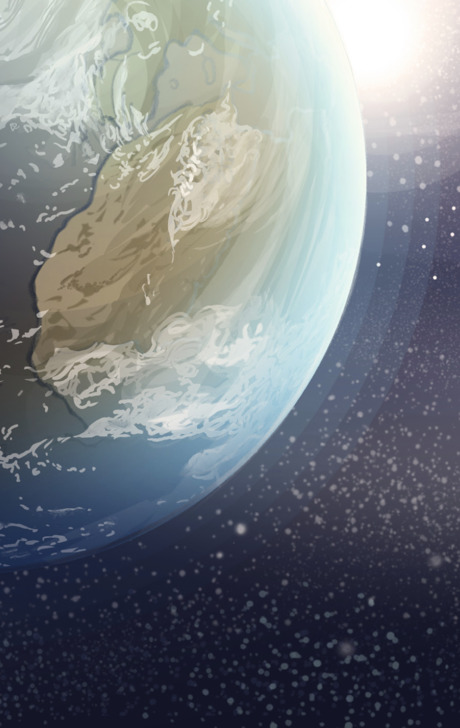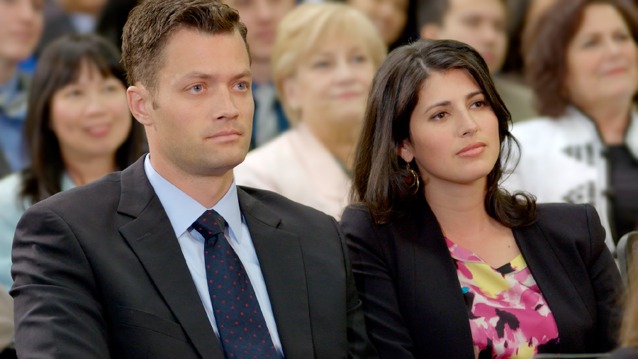Notes from the Resistance: A Column on Language and Power
Summer Brennan, In Defense of Linguistic Infrastructure
December 9, 2016
By Summer Brennan
It is a bright cold day in December, and the
clocks are striking thirteen. To the past or to the future, to an age
when thought is free, from the age of Trump, from the age of Wikileaks,
from a dead woman, greetings.
This is to be a column about language, but before I get to that, and why, we’ll need to get a few things straight.
In George Orwell’s 1984, the first
act of rebellion undertaken by Winston, the protagonist, is to acquire a
blank book and begin to write down his thoughts and memories. He does
so despite the glare of a Big Brother poster, and under the watchful eye
and keen ear of the two-way telescreen.
I write to you now from my laptop with
its two-way listening and seeing devices. I have a smartphone in my bag
that does the same thing. I use these instruments to watch and listen
and in return people can watch and listen to me. I operate under the
impression that it is I who chooses which people can and can’t do this,
but we all know it is already legal for that not to be the case.
Article continues after advertisement
We already know that in America you can
be arrested for suspected petty theft and wind up imprisoned, untried,
for years. We already know that in America you can be pulled over for a
burned out taillight and wind up dead at the hands of police. In America
you can be raped and the odds are overwhelmingly high that your rapist
will walk free. These things shouldn’t happen, and yet they do. These
things don’t affect you personally, until they do. You might think that
these things happen because you are the wrong color, or the wrong
gender, or the wrong religion. But right now in America the boundaries
of right and wrong are shifting dangerously.
Are you listening now? Good.
It is not an exaggeration to say that we
are witnessing the rise of fascism in America. With the election of a
demagogue one month ago, this has moved beyond ideas of liberal or
conservative, Republican or Democrat. Something different is happening.
We are undergoing an assault on our democratic norms and the freedom of
our press, without which a democracy cannot function.
The assertion that Trump is spoiling to
rule America as a dictator—an authoritarian, an autocrat, a tyrant—has
been made across the political spectrum, from liberal magazine editors
to conservative former presidential candidates. In a recent New York Times opinion piece, a Republican elector from Texas likened his refusal to cast his electoral vote for Trump to defending America after 9/11:
Fifteen years
ago, as a firefighter, I was part of the response to the Sept. 11
attacks against our nation. That attack and this year’s election may
seem unrelated, but for me the relationship becomes clearer every day.
Trump is telling big, consequential lies:
that the election he won was not legitimate, that millions of illegal
votes were cast, but that the results should stand anyway; that the
protestors protesting against him were paid; that the New York Times
is losing subscribers; that “the media” is lying; that the president of
Taiwan had just called to congratulate him, when in fact the call was
set up months ago (an affront to the Chinese government); that
flag-burners should be stripped of citizenship. Lies and threats like
this, from someone as powerful as Trump is now, aren’t just words. They
are language, weaponized.
Aside from Trump’s shock-and-awe
untruths, there is also an equally dangerous seep of something else,
like poison in the groundwater. Major newspapers are calling white
supremacists “dapper.” The Congressional Science Committee is tweeting
out stories by climate change deniers. Trump takes advice from a
conspiracy theorist who suggested that the copiously documented massacre
of small children was faked. A US general and his son, who was given a
“.gov” transition team email address, spread a fake story that resulted
in an armed man firing shots in a pizza restaurant. A CNN chyron read
“are Jews people?” and pundits floated the idea of concentration camps
in America on national television, citing Japanese internment as a legal
precedent. A Trump surrogate said “there’s no such thing,
unfortunately, anymore, as facts.”
This is not a drill. This is fascism and
it is here, poised to take over the American government. Trump poses an
existential threat to our country. It isn’t alarmist to say these
things, it is simply true.
Orwell wrote that freedom is the freedom
to say that two plus two equals four. He wrote that he who controls the
past controls the future, and that he who controls the present controls
the past. If you can colonize the minds of a population with untruths
and confusion, you forcibly re-write reality. This is done with stories.
It’s done with language. How we speak about the world is a reflection
of how we see it.
Trump, himself a man with a strikingly
limited vocabulary, has launched an assault on the American psyche, and
already our linguistic infrastructure is beginning to shift and crumble.
Less familiar words have been pushed to the fore, or have taken on new
meaning: contrarian, snowflake, gaslighting, normalization, nationalist,
rigged, hacked, resist, emolument.
We have been beset with dangerous
euphemisms. A neo-nazi becomes “an economic populist.” A lie becomes “a
claim.” A propagandist becomes “a maverick” or “a provocateur.” Equality
becomes “identity politics.” A public school privatizer becomes “a
school reformer.” A climate change denier becomes “a climate contrarian”
and a climate scientist “a climate alarmist.” Journalists are being
called “presstitutes” or “lügenpress,” which is German for “lying
press,” a term adopted by the Third Reich. There has been a kind of
doublespeak silencing on social media in which those speaking out
against white supremacists are themselves called “racists,” and those
pointing out misogyny are called “sexist.” A protestor becomes “an
economic terrorist.” White people become “the working class.”
Words have power.
We fight back by correctly labeling; by
calling a white supremacist a white supremacist, a fascist a fascist, a
sexual assault a sexual assault. We name what is happening or about to
happen around us: kleptocracy, kakistocracy, authoritarianism, fraud,
corruption, embezzlement. We can creatively add to the taxonomy of
tyranny even as we feel ourselves buried alive by it: idiocracy,
dystocracy, misogynocracy.
We in America are already being told that two plus two equals five. In time, just like Winston in 1984,
we may even come to believe it. Or we may cease to care whether we
believe it or not. Under the cover of that uncaring darkness, any number
of atrocities may occur.
No one person can defend everything in
America that will need defending in the age of Trump. What we must do,
instead, is to find our particular hills to defend, and th n to defend
them as if our freedom depended on it. Even if these battles are lost,
the very act of writing down the progression of that loss, as Winston
did, is an act of resistance. The hijacking of public language, as is
happening now, is a way to shift perception—to bend and control
thought—and must be resisted.
I would like to invite readers to join me
in doing this. Get a diary or journal and write down as many words as
you can that relate to the things that you value. Fascism favors
sameness; it represents a desertification of language and thinking. You
can fight sameness with diversity. Inside this thought-desert, we must
learn to be jungle oases. If you plan to defend nature, write down the
names of birds and landscape as a start. Write phoebe, warbler, wren, heron, starling, swift, swallow. Write dale, dell, coppice, coomb, swale, swarth. Let your language soar and spread. Get closer and write root, leaf, stem, stamen, stigma, filament, sepal, pistil, petal. Write down how the world and words around you change.
We all need our hills to defend. As I
intend to chronicle in this twice-monthly column, language will be mine.
I’ll be here, wielding pen or laptop under the eye of Big Brother,
repeating that two plus two equals four.





